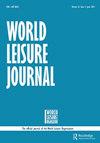在任何地方工作:传统工作、共同工作和工作务虚会:概念回顾
IF 2
Q3 HOSPITALITY, LEISURE, SPORT & TOURISM
引用次数: 10
摘要
摘要“工作”是一种新型的远程工作,以应对日益数字化和灵活性的工作。通过促进工作、娱乐和私人生活领域与可选的旅游导向相结合,工作空间促进了灵活的工作实践,并对全球知识工作者、公司和几个行业的工作生活产生了重大影响。虽然房地产行业最初的任务是以办公室的形式提供就业机会,但新的参与者突然进入了市场,比如酒店业。这种有趣的混合物开辟了令人兴奋的研究方法。在对这些工作休闲活动的理解上,文学存在着相当大的知识差距。特别引人注目的是,缺乏对变通方法的明确分类,而且几乎没有关于变通方法的经验证据。因此,本文旨在通过概述一个案例研究,在第一个经验证据的基础上,为工作提供一个连贯的描述性基础、定义和分类。概念分析发现,工作可以分为三种类型——传统工作、共同工作和工作退缩——每种类型都有不同的特点。最后,研究了受影响的行业,并展示了工作对经济的影响。通过提供第一个工作分类法,本文可以作为进一步研究的基础。本文章由计算机程序翻译,如有差异,请以英文原文为准。
Work from anywhere: traditional workation, coworkation and workation retreats: a conceptual review
ABSTRACT “Workation” is a new type of remote work in response to the increasing digitalization and flexibilization of work. By facilitating a combination of the domains of work, recreation and private life with an optional touristic-oriented pursuit, workation spaces promote flexible work practices and have significant impact on the working lives of knowledge workers, companies and several industries worldwide. While the original task of the real estate industry is to provide jobs in the form of offices, new players are suddenly entering the market, such as the hotel industry. This interesting mixture opens up exciting research approaches. There exists a rather extensive knowledge gap in literature understanding these work–leisure activities. Particularly striking is the lack of a clear classification of workation and little empirical evidence on workation exists. Therefore, this paper aims to provide a coherent descriptive basis, definition and classification of workation based on first empirical evidence by outlining a case study. The conceptual analysis finds that workation can be categorized into three types – traditional workation, coworkation and workation retreat – each with different characteristics. Finally, affected industries are studied and effects from workation on economies are shown. By providing a first taxonomy of workation, this paper might serve as a basis for further research.
求助全文
通过发布文献求助,成功后即可免费获取论文全文。
去求助
来源期刊

World Leisure Journal
HOSPITALITY, LEISURE, SPORT & TOURISM-
CiteScore
3.10
自引率
6.20%
发文量
34
期刊介绍:
As the official journal of the World Leisure Organisation, the purpose of the World Leisure Journal is to stimulate and communicate research, theory, and critical thought in all areas that address leisure, including play, recreation, the arts and culture, sport, festivals, events and celebrations, health and fitness, and travel and tourism. Empirical and theoretical manuscripts, as well as position papers, review articles, and critical essays are published in the World Leisure Journal . The World Leisure Journal is international in scope, and encourages submissions from authors from all areas of the world. Comparative cross-national and cross-cultural research reports are especially welcome. For empirical papers, all types of research methods are appropriate and the subject matter in papers may be addressed from perspectives derived from the social, behavioural, and biological sciences, education, and the humanities. Both pure and applied research reports are appropriate for publication in the World Leisure Journal . In addition to original research reports and review essays, book reviews, research notes, comments, and methodological contributions are appropriate for publication in the World Leisure Journal .
 求助内容:
求助内容: 应助结果提醒方式:
应助结果提醒方式:


